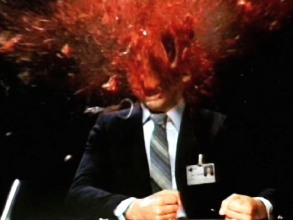
…so don’t swallow that pill!
If you’re playing small, making yourself small, or trying to convince yourself and everyone else that you’re too small to make a difference or to be worth bothering with, just stop it.
Undoubtedly you have reasons for playing small, but the reasons don’t matter.
A hundred people may come up with a hundred different reasons, but they’re all in futile pursuit of the same basic stuff:
Safety
Security
Contentment
Satisfaction
Certainty
Pursuit of these things is futile because they are either impossible to get or impossible to get and keep—ironically, especially by playing small.
If you want a guarantee, buy a toaster. –Clint Eastwood
People who are playing small are usually also pursuing happiness, but they would prefer not to be disturbed. Maybe this is the source of the idea of being happy as a clam—or happy as a clam at high tide, which is the complete idiom, high tide being the time when clams are least likely to be disturbed by clam diggers. Unfortunately being alive and being disturbed kind of go hand-in-hand unless you’re living in some kind of protective bubble.
If you’re aiming for safety, security, contentment, satisfaction, and certainty, what are you willing to give up in exchange? Are you willing to give up your freedom? Your vitality, energy, and power? The possibilities for joy, adventure, creativity, spontaneity, and aliveness? Are you willing to give up your life? How afraid are you of failing, making a mistaken, losing, getting hurt, having to expend too much effort, being outside your comfort zone? Have you set most of your expectations of yourself so low that even when you meet them it merits nothing more than a yawn?
You’re bigger than that. Maybe its time to try taking the other pill, metaphorically speaking.



